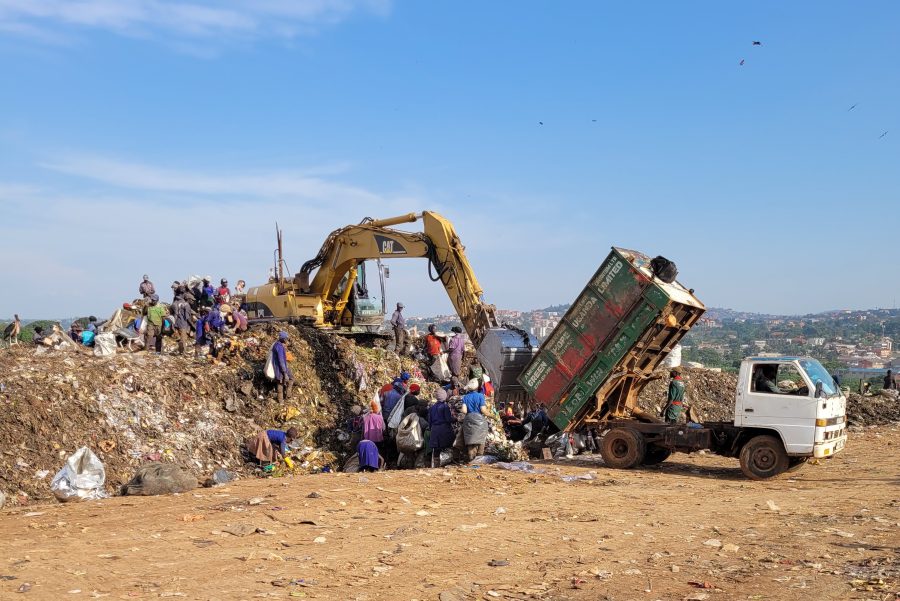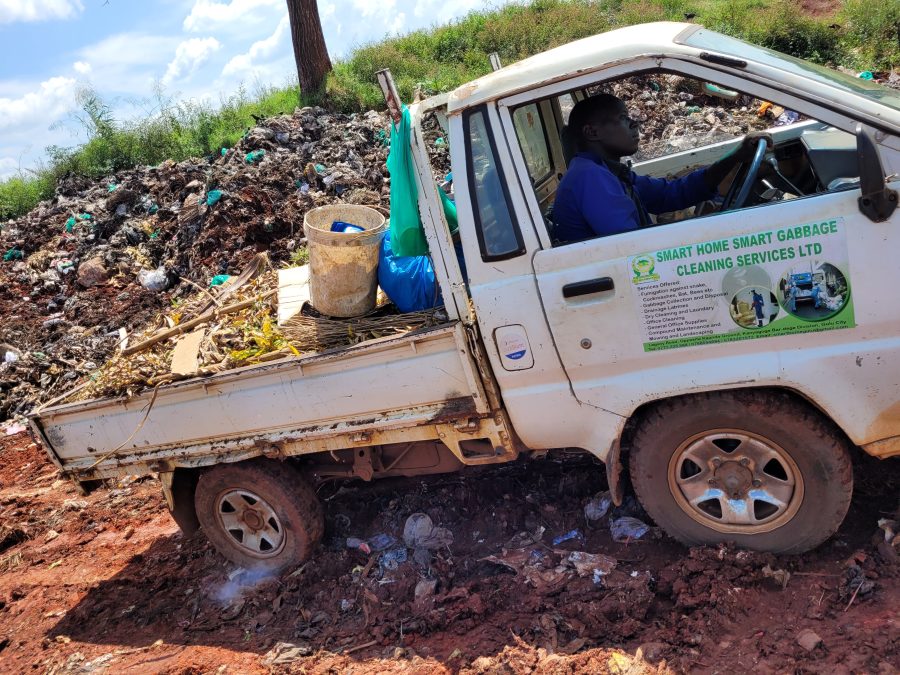Ensuring safe and continuous waste management during Covid-19 in Uganda
NatuReS supports the development of health and safety guidelines for solid waste handlers in the Greater Kampala Metropolitan Area and Gulu City

Copyright: GIZ/ Dr. Swaib Semiyaga
Since the start of the Covid-19 pandemic and the introduction of control and prevention measures such as wearing face masks, mandatory quarantine at home or in a hotel, the composition of municipal waste has changed in Uganda. Municipal waste, which is collected from households, commerce and trade, office buildings, institutions and small businesses, as well as yard and garden waste and street sweepings, now includes infectious waste. This puts particularly solid waste handlers at an increased risk of infection, which has made the continuous provision of solid waste management services difficult.
However, waste that is not being collected ends up polluting water and soil, representing a risk to the health of communities, or blocking drainage channels, which increases the risk of flooding in cities. A continuous, safely carried out, waste management service is therefore essential for cities, also and particularly in pandemic times.

Copyright: GIZ/Dr. Swaib Semiyaga
Protecting natural resources by guaranteeing for continued waste mangement
It is against this background, that local governments in Greater Kampala Metropolitan Area (GKMA) and Gulu City in Northern Uganda, with the support of GIZ’s Natural Resources Stewardship Programme, developed solid waste safety and handling guidelines.
The guidelines aim at supporting solid waste regulators, companies and individuals in GMKA and Gulu City in improving the health and safety of solid waste handlers. Specifically, they will contribute to (i) improved working conditions for solid waste handlers; (ii) safeguarded jobs due to the reduced risk of Covid-19 infections at work; (iii) increased awareness about Covid-19 and adherence to standard operating procedures (SOPs), and (iv) behavior change towards improved management of solid waste.
Health and safety guidelines for waste handlers
The guidelines include a code of conduct for waste handlers, Covid-19 SOPs for solid waste handlers, exaplaining the role of waste handlers’ associations, and a section on Covid-19 prevention and control.
The fight against the pandemic requires concerted efforts, and NatuReS is committed to continuing its support to partners during this challenging period. Protecting natural resources requires a continued safe and reliable waste management. The guidelines are an important aspect of guaranteeing such a continued service, while protecting waste handlers and their income.
To stay up to date, also follow us on Twitter!